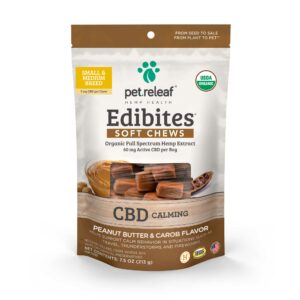
Key points
- White foamy vomit is formed with undigested food, digestive secretions, and saliva. In most cases, there’s nothing to worry about if your dog throws up white foam. Most causes of this condition are minor and resolve on their own.
- The most common causes for foamy vomit in dogs are indigestion, bloating, acid reflux, kennel cough, pancreatitis, kidney disease, and parvovirus.
- If your dog suffers from immune diseases or other medical conditions, it’s best to take it to a vet, as vomiting can worsen the existing symptoms.
- To minimize the risk of vomiting, monitor what your dog eats and keep the toxic products and chemicals out of its reach. Also, don’t give your dog too many treats, and make sure it doesn’t drink and eat immediately after exercising.
Occasionally, dog owners have to put up with their canine’s puke, but besides the discomfort of having to clean it up, a little dog vomit is nothing to worry about. But what if your dog is throwing up white foam? This condition may be concerning for you, but it’s usually very easy to determine what’s causing it.
In most cases, the problem will resolve on its own, and there’s no need for you to panic. However, some cases may be severe, requiring you to seek immediate veterinary attention, especially if your dog looks physically sick. Let’s take a closer look at the possible reasons for white foam vomit so you can gain a clearer understanding of when to be worried.
Table of Contents
What Does It Mean When Dogs Throw Up White Foam?
White foamy vomit is formed when saliva and digestive secretions mix with the air in your dog’s stomach. The difference between white foamy vomit and regular vomit is that there’s no bile present in white vomit.
This type of vomit is usually caused by an irritant or a trigger. But it can also be produced as a result of regurgitation – a process during which the contents of the esophagus are expelled back into the mouth. When dogs regurgitate, they don’t show any signs of discomfort. The product of regurgitation usually comes out as a clear or white fluid that can sometimes contain undigested pieces of food.
When To Be Concerned About White Foamy Dog Vomit?
You should take your puppy, elderly, or sick dog to a vet if it starts throwing up white foam. Because puppies and older dogs have weaker immune systems, constant vomiting can make them ill and impact their general health. In addition, if your dog has a medical condition, vomiting can worsen the issue or be a sign that the condition is not being treated properly.
If you take your pet to a vet, they will not only diagnose the underlying condition but also treat your dog for possible dehydration, which usually occurs after prolonged vomiting.
But what if your adult dog is generally healthy, but it occasionally throws up white foam? Then the condition is most likely caused by indigestion. This doesn’t usually require veterinary help, but if vomiting episodes become very frequent, your dog develops other symptoms, or starts behaving abnormally, you should book a vet visit.
Why Do Dogs Throw Up White Foam? Top 7 Reasons
Indigestion
Dogs experience indigestion or dyspepsia just as frequently as humans, but they tend to throw up a lot more. So most of the time, when you notice your dog vomiting white foam, it means that the pet is trying to get rid of the product that’s upsetting its stomach.
White foamy vomit can also occur due to your dog eating too much grass, consuming its food too quickly, or eating and drinking too much shortly after exercising. There’s no need to be concerned as long as vomiting doesn’t occur too often.
Acid Reflux
If you notice your dog vomiting white foam early in the morning before eating, this indicates that the pet is experiencing acid reflux or reflux gastritis. Reflux gastritis is a condition that occurs when bile moves from the intestines back to the stomach after your pet hasn’t eaten any food for an extended period of time. Bile will irritate your dog’s stomach and lead to acid or bile reflux. As a result, your dog can vomit either white or yellow foam. This condition is referred to as bilious vomiting syndrome.
If you feed your dog smaller portions and increase the frequency of meals, it will lower the risk of your pet experiencing acid reflux.
Bloat
Bloating is a severe condition that causes your dog’s stomach to expand because it’s filled with gas, food, or fluid. Deep-chested dog breeds are more prone to bloating,
One of the early symptoms of this condition is throwing up white foam, and other signs include the inability to defecate, excessive drooling, coughing, and pale gums. If you suspect that your dog is throwing up due to severe bloating, take it to a vet immediately since this condition can cause a lot of pain and even make your dog lethargic.
Kennel Cough
Kennel cough is a respiratory infection that may occur if your dog comes in close contact with other infected dogs. This infection is not serious and usually resolves on its own within 7-10 days.
The most distinctive symptom of kennel cough is a hacking or honking cough that produces white foam. Other symptoms of this disease include a runny nose, lethargy, sneezing, and loss of appetite.
Pancreatitis
Pancreatitis is a condition that results in inflammation of the pancreas. The pancreas is responsible for producing enzymes that aid in digestion and endocrine function. The symptoms of pancreatitis include abdominal pain, hunched back, diarrhea, loss of appetite, lethargy, and dehydration. If your dog suffers from pancreatitis, it may also occasionally throw up white foam.
Kidney Disease
If your dog has difficulty urinating, experiences loss of energy, disorientation, and white foam vomiting, it may be a sign of kidney disease. This condition can be either chronic or acute.
The difference is that acute kidney disease develops due to the pet eating something toxic and requires urgent treatment. On the other hand, chronic disease develops over a prolonged period of time and is managed with a special diet and medications.
Parvo
Parvovirus is a dangerous, highly infectious, and potentially deadly virus. Puppies and younger dogs are more prone to parvovirus, and it can cause death in as little as 2 days. When a pet is sick with parvo, vomiting white foam can be accompanied by bloody diarrhea, lethargy, and a fever.
Other possible causes for throwing up white foam include food changes, heatstroke, and a foreign body lodged in the pet’s throat.
How To Prevent My Dog From Vomiting?
It’s not always possible to prevent vomiting in dogs, but there are some things you can do to minimize it:
- Keep all the toxic and indigestible things out of your dog’s reach.
- Don’t let your dog eat grass or outdoor plants.
- Avoid giving too many treats during the day and make sure that the treats you choose are healthy.
- Clean your dog’s bowls after each meal and gradually switch your dog to a new diet.
- Don’t forget about regular vet check-ups to keep the pet healthy.
If you suspect that your dog’s vomiting is caused by a serious issue, take it to a vet immediately for an exam. If your dog has vomited once and looks perfectly fine after that, it may be just a sign of a simple stomach upset. Keep an eye on the pet for the next 12 hours in case it experiences any other severe symptoms. Also, try to avoid giving your dog food for the next 12 hours or so. After that, you can start with giving the pet bland food and gradually switch it back over to its normal diet.
FAQ
What to do if a dog is throwing up white foam?
The most common cause for white foamy vomit is stomach upset. Try withholding food from your dog for the next 12 hours and then slowly start feeding your dog small amounts of its normal food.
What can I give my dog for vomiting?
If your dog throws up several times in a row, it’s best to take it to a veterinarian. If your dog experiences other symptoms besides stomach upset, it may indicate that the pet is developing a serious health issue.
How do you settle a dog’s upset stomach?
To minimize the discomfort caused by an upset stomach, you should avoid giving your dog any food for 12 hours, give it bone broth to drink, or feed it pumpkin. You should also increase the amount of water you give your dog.







